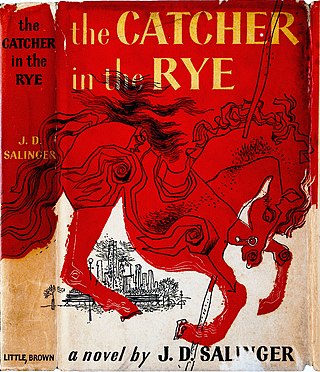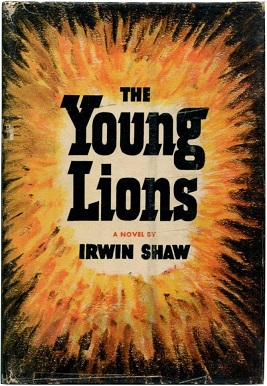
Myanmar, officially the Republic of the Union of Myanmar and also known as Burma, is a country in Southeast Asia. It is the largest country by area in Mainland Southeast Asia and has a population of about 55 million. It is bordered by Bangladesh and India to its northwest, China to its northeast, Laos and Thailand to its east and southeast, and the Andaman Sea and the Bay of Bengal to its south and southwest. The country's capital city is Naypyidaw, and its largest city is Yangon.

Paul Reubens was an American actor and comedian, widely known for creating and portraying the character Pee-wee Herman.

The Catcher in the Rye is a novel by American author J. D. Salinger that was partially published in serial form in 1945–46 before being novelized in 1951. Originally intended for adults, it is often read by adolescents for its themes of angst and alienation, and as a critique of superficiality in society. The novel also deals with themes of innocence, identity, belonging, loss, connection, sex, and depression. The main character, Holden Caulfield, has become an icon for teenage rebellion. Caulfield, nearly of age, gives his opinion on a wide variety of topics as he narrates his recent life events.

The Indian Army during World War II, a British force also referred to as the British Indian Army, began the war, in 1939, numbering just under 200,000 men. By the end of the war, it had become the largest volunteer army in history, rising to over 2.5 million men in August 1945. Serving in divisions of infantry, armour and a fledgling airborne force, they fought on three continents in Africa, Europe and Asia.

Roland Emmerich is a German film director, screenwriter, and producer. He is widely known for his science fiction and disaster films and has been called a "master of disaster" within the industry. His films, most of which are English-language Hollywood productions, have made more than $3 billion worldwide, including just over $1 billion in the United States, making him the country's 17th-highest-grossing director of all time.

During the Second World War (1939–1945), India was a part of the British Empire. British India officially declared war on Nazi Germany in September 1939. India, as a part of the Allied Nations, sent over two and a half million soldiers to fight under British command against the Axis powers. India was also used as the base for American operations in support of China in the China Burma India Theater.

The Ledo Road was an overland connection between British India and China, built during World War II to enable the Western Allies to deliver supplies to China and aid the war effort against Japan. After the Japanese cut off the Burma Road in 1942 an alternative was required, hence the construction of the Ledo Road. It was renamed the Stilwell Road, after General Joseph Stilwell of the U.S. Army, in early 1945 at the suggestion of Chiang Kai-shek. It passes through the Burmese towns of Shingbwiyang, Myitkyina and Bhamo in Kachin state. Of the 1,726 kilometres (1,072 mi) long road, 1,033 kilometres (642 mi) are in Burma and 632 kilometres (393 mi) in China with the remainder 61 km was in India. The road had the Ledo-Pangsau Pass-Tanai (Danai)-Myitkyina--Bhamo-Mansi-Namhkam-Kunming route.

Human rights in Myanmar under its military regime have long been regarded as among the worst in the world. In 2022, Freedom House rated Myanmar’s human rights at 9 out 100.

Tyler Perry is an American actor, filmmaker, and playwright. He is the creator and performer of Mabel "Madea" Simmons, a tough elderly woman, and also portrays her brother Joe Simmons and her nephew Brian Simmons. Perry's films vary in style from orthodox filmmaking techniques to filmed productions of live stage plays, many of which have been subsequently adapted into feature films. Madea's first appearance was in Perry's play I Can Do Bad All by Myself (1999) staged in Chicago.
The 6th Queen Elizabeth's Own Gurkha Rifles was a rifle regiment of the British Indian Army, before being transferred to the British Army following India's independence. Originally raised in 1817 as part of the army of the British East India Company, the regiment has been known by a number of names throughout its history. Initially the unit did not recruit from the Gurkhas, although after being transferred to the British Indian Army following the Indian Rebellion of 1857, it became a purely Gurkha regiment, in due course with its regimental headquarters at Abbottabad in the North West Frontier Province of British India. After 1947 the regiment was one of only four Gurkha regiments to be transferred to the British Army and this continued up until 1994, when it was amalgamated with other Gurkha regiments to form the Royal Gurkha Rifles. Over the course of its 177-year history, the regiment was awarded 25 battle honours, although prior to World War I it had only been awarded one and no battle honours were awarded to it after World War II.
Lake of No Return is a body of water in Myanmar, lying in the area of the Pangsau Pass (3727') on the India–Myanmar border south of Pangsau village. The lake is 1.4 km in length and 0.8 km in width at its widest part. It is located 2.5 km to the southwest of the Ledo Road, formerly called Stilwell Road, the road the Western Allies started building in 1942 to supply the Chinese armies of Chiang Kai-shek.

Eric Sutherland Lomax was a British Army officer who was sent to a Japanese prisoner-of-war camp in 1942. He is most notable for his book, The Railway Man, about his experiences before, during, and after World War II, which won the 1996 NCR Book Award and the PEN/Ackerley Prize.

Ward Swift Just was an American writer. He was a war correspondent and the author of 19 novels and numerous short stories.

The Indian Army, also called the British Indian Army, was involved in World War I as part of the British Empire. More than one million Indian troops served overseas, of whom more than 60,000 died during the war.
Brendan Ian Koerner is an American author who has been a contributing editor and columnist for Wired magazine, The New York Times, Slate magazine, and others. His books include Now the Hell Will Start (2008) and The Skies Belong to Us (2013).

The Fort Lawton riot refers to a series of events in August 1944 starting with a violent conflict between U.S. soldiers and Italian prisoners of war at Fort Lawton in Seattle, Washington during World War II. After the riot, prisoner Guglielmo Olivotto was found dead. This led to the court-martial of 43 soldiers, all of them African Americans.

Quiara Alegría Hudes is an American playwright, producer, lyricist and essayist. She is best known for writing the book for the musical In the Heights (2007), and screenplay for its film adaptation. Hudes' first play in her Elliot Trilogy, Elliot, A Soldier's Fugue was a finalist for the 2007 Pulitzer Prize for Drama. She received the 2012 Pulitzer Prize for Drama for Water by the Spoonful, her second play in that trilogy.

Herman Perry was an African-American U.S. Army soldier during World War II, who deserted after fragging an unarmed white lieutenant attempting to arrest him. After being sentenced to death, he escaped custody, and a manhunt was launched while he lived in the jungle. Perry was eventually recaptured once more and court-martialed. He was hanged for murder and desertion, making him the only American soldier executed in the China Burma India Theater during World War II.

The Young Lions (1948) is a novel by Irwin Shaw about three soldiers in World War II.

Soldier of Orange is a Dutch musical production, based on the true story of resistance hero Erik Hazelhoff Roelfzema. In the 1970s, he wrote his experiences during World War II down in a book and director Paul Verhoeven made it into a 1977 film, starring actor Rutger Hauer.
















